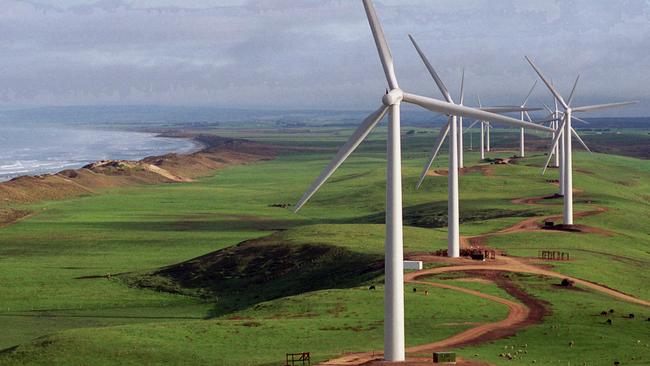Banks are realigning their strategies to cash in on the net-zero targets of companies
Banks are beginning to focus on net-zero emissions targets in order to capitalise on the $US9 trillion required by companies globally each year to transition.

Banks are starting to use net-zero emissions targets to “reorientate their strategy” as they seek to capitalise on the $US9 trillion ($13 trillion) required per year in capital expenditure – while not walking away from companies making the transition.
That’s the view of McKinsey & Company partner Sophie Underwood, who was among the authors of a new report delving into how banks will manage financed emissions and support the transition.
“Australian banks are performing quite well in terms of their ambition,” she said in an interview.
“Banks actually will play a really critical role in the transition to net zero … as there is an industrial revolution-scale transformation of the economy. Banks are indeed starting to use these net zero targets as a means to actually reorientate their strategy and their growth outlook.”
Westpac in July joined the United Nations-convened Net-Zero Banking Alliance, making it the last of its domestic rivals to sign up. McKinsey’s report noted the number of institutions joining the alliance grew from 43 to 122 in a little over a year, representing 40 per cent of global banking assets.
Banks that sign up must commit to transitioning emissions from their lending portfolios to align with a net-zero target, and also apply sector-specific targets and measurements.
Ms Underwood said banks were balancing their support for high-emitting customers who were lowering their carbon output, with the desire to capitalise on financing cleaner technologies.
McKinsey’s report highlighted the challenge for banks around sourcing reliable data on their customers’ emissions. “It often involves multiple data vendors and extracting client-level data from multiple sources, including often unstructured data sets,” the report said. “Banks should work to identify the best possible data source and decide how emissions are attributed. The climate data landscape is currently disparate.”
Ms Underwood said while some sectors, including power generation, were publishing detailed emissions data other sectors were lagging. She identified agriculture as “extremely fragmented” and diverse, noting that caused challenges in the sourcing of reliable and consistent data.
The report also said there was variance in how financiers were measuring emissions.
“Some banks have included only CO2 in their emissions measurement, but other gases, especially methane, are critical drivers of emissions in certain sectors, including oil and gas and especially agriculture,” it added.
The McKinsey Global Institute estimates the shift to net zero will require about $US9 trillion per year in capital expenditure until 2050, spanning areas such as transport, buildings, infrastructure, power and agriculture.
The latest report outlines the steps banks should take to better measure their financed emissions including compiling a reliable baseline, setting objective targets, embedding execution and taking advantage of opportunities.
“Banks that move quickly to embed net zero into their business execution will be best placed to capture share. Areas for growth need to go beyond classic green finance activities such as renewables lending and green bonds,” the report said. “There will not be enough of that business, at a high enough return, to support a successful alignment of the portfolio.
“For banks to reach targets, they must embed their net-zero commitments into their operations, including their commercial execution, credit operations, and management reporting.”
Three of the big four banks will be peppered with questions about their climate commitments next month at their annual meetings. Investors will also vote on a proposed change to the banks’ respective constitutions, and if that proposal is passed, will be polled on whether the institutions should disclose information to show their financing will not be used for new or expanded fossil fuels.




To join the conversation, please log in. Don't have an account? Register
Join the conversation, you are commenting as Logout